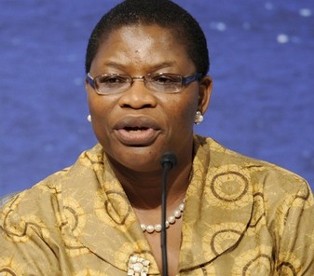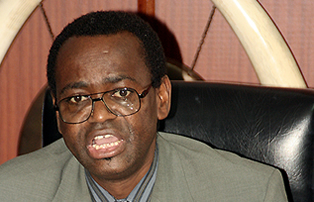EDITOR’s Note
This Story has been withdrawn by ZANIS

The World Bank (WB) has observed that the cost of doing business and various structural inefficiencies have affected Zambia’s economy, making it difficulty to grow above the 6 percent threshold.
World Bank Vice President for Africa, Ezwekwesili Obiageli said there are significant administrative and structural weaknesses affecting the way to do business in Zambia.
In her keynote speech at the official opening of the National indaba in Lusaka today, Ms Ezekwesili said the communications sector has remained among the most expensive in the world.
She further said the energy sector, on the other hand remains highly inefficient with the bulk of the money generated by ZESCO tilted towards supporting wages.
The World Bank Vice President for Africa also said human capital has remained underdeveloped and under-utilized.
Ms. Ezwekwesili said the agriculture sector has continued to lag behind despite its great potential to contribute significantly to the growth of the wealth of the country.
She said government has been emphasizing more on fertiliser provision and subsidies without attending to other critical aspects to support peasant farmers such as investment in infrastructure development and establishment of an open market system for the disposal of the farmers’ produce.
Ms. Ezwekwesili further said investors in this sector have had to contend with the poor inputs distribution system, high cost of production, high interest rates, unpredictable markets and pricing as well as inadequate extension service officers to support the rural farmers whose production standards are not cost efficient and competitive.
She said the sector was not sufficiently diversified to help the rural farmers can take advantage of the global demand for various products.
Ms. Ezwekwesili added that the rural electrification programme has still not met minimum benchmarks to attract large scale investments in rural areas, thereby making it difficult for business people in rural areas to adopt new technologies as part of their investments.
She said citizens with sufficient capital resources in urban areas have resisted investing in agriculture because the sector does not offer meaningful value for money.
She pointed out that even commercial farmers with the potential to maximize the economies of scale have struggled to break through, due to problems they face, ranging from sourcing inputs to accessing markets, which have remained highly inefficient and expensive.
She added that most farmers are failing to service their loans with commercial banks and advised government support the sector which she described as important to the sustained growth of the country’s economy.
She said it is now time to institute bold structural changes at micro-economic level because government has lately shown tremendous goodwill towards private sector initiatives.
ZANIS/AJN/PK/ENDS



